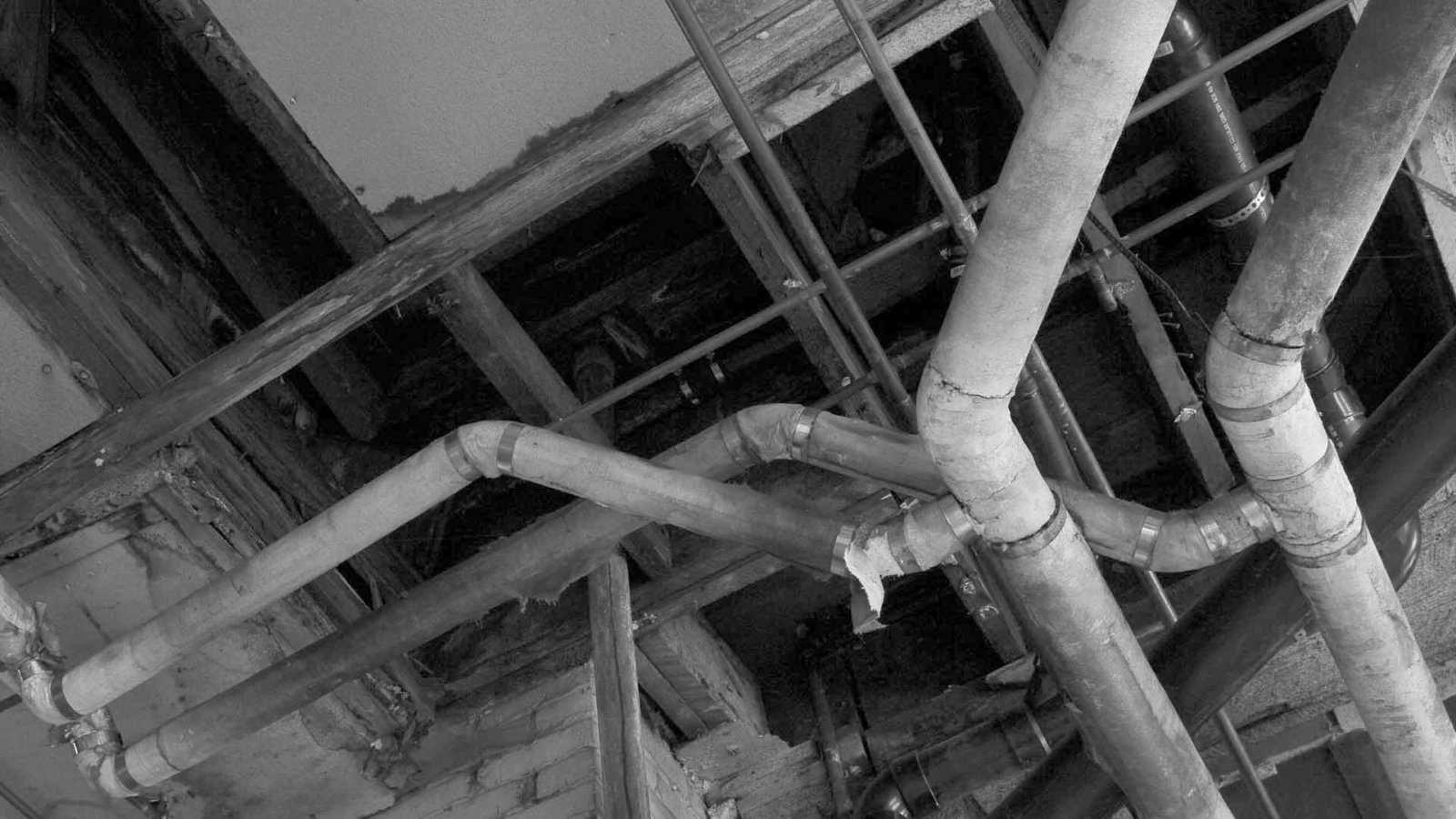

Articles
Why Does My Plumbing Pipe Make Noise
Modified: January 6, 2024
Discover the reasons behind the noisy plumbing in your home with our informative articles. Learn how to identify and solve common plumbing noises for a peaceful living environment.
(Many of the links in this article redirect to a specific reviewed product. Your purchase of these products through affiliate links helps to generate commission for Storables.com, at no extra cost. Learn more)
Introduction
Plumbing is an essential part of any home, providing us with the water we need for cooking, cleaning, and bathing. However, sometimes our plumbing systems can make strange and bothersome noises. From rattling pipes to loud bangs, these noises can be a cause for concern and may indicate underlying issues that need to be addressed.
Understanding why your plumbing makes noise is crucial in order to properly diagnose and resolve the problem. In this article, we will explore some of the common causes of plumbing noise and provide you with tips on how to troubleshoot them.
Before we dive into the causes and solutions, it’s important to note that not all plumbing noises are an indication of a serious problem. Sometimes, the noise can be harmless and simply a result of normal operation. However, it’s always better to be safe than sorry and address any persistent or concerning noises in your plumbing.
So, let’s roll up our sleeves and get to the bottom of why your plumbing is making noise!
Key Takeaways:
- Addressing plumbing noise issues promptly and effectively can restore peace and tranquility to your home while preventing potential damage and extending the lifespan of your plumbing system.
- When in doubt, it’s best to seek the expertise of a professional plumber to accurately diagnose and resolve persistent or complex plumbing noise issues, ensuring safety and peace of mind.
Read more: Why Does My Toilet Make Noise
Understanding Plumbing Noises
If you’ve ever heard strange sounds coming from your plumbing, you may have wondered what exactly is causing them. Plumbing noises can range from a gentle hum to loud thumping or banging sounds. Understanding the different types of plumbing noises can help you identify the underlying causes and take appropriate action.
Plumbing noises can be classified into two main categories: water-related noises and pipe-related noises. Water-related noises are typically caused by the movement or turbulence of water within the pipes. On the other hand, pipe-related noises are the result of pipes expanding, contracting, or coming into contact with other surfaces.
Some common water-related plumbing noises include:
- Gurgling: This is a bubbling or gurgling sound usually heard when water is draining from a sink or toilet. It can be caused by a clogged or partially blocked drain that is not allowing water to flow freely.
- Whistling: A high-pitched whistling sound may indicate a problem with the water pressure or a faulty valve. It can also occur when there is air trapped in the pipes.
- Banging: This is a loud banging or hammering noise that can be heard when you turn off a faucet or when the water flow is suddenly stopped. It is commonly caused by water hammer, which is a sudden change in water pressure that causes the pipes to vibrate and make noise.
On the other hand, some common pipe-related plumbing noises include:
- Rattling: If you hear a rattling noise when you turn on or off the water, it could be due to loose pipes. Loose or improperly secured pipes can vibrate and create rattling sounds.
- Screeching: A screeching or squealing noise can be caused by pipes rubbing against each other or against a surface. This typically happens when the pipes expand or contract due to temperature changes.
- Knocking: A knocking or tapping sound can occur when hot water flows through cold pipes, causing them to expand rapidly. This is known as pipe expansion and contraction.
By understanding the different types of plumbing noises and their causes, you can start troubleshooting the problem and take the necessary steps to resolve it. In the next section, we will explore some of the common causes of plumbing noise and discuss how to troubleshoot them.
Common Causes of Plumbing Noise
When it comes to plumbing noises, there can be several underlying causes. Understanding these causes can help you identify and resolve the problem. Let’s take a look at some of the common culprits:
- Water Hammer: Water hammer is a common cause of loud banging or hammering noises in plumbing systems. It occurs when the flow of water is suddenly stopped or redirected, causing a shockwave that travels through the pipes and creates noise. Water hammer can be caused by closing a valve too quickly, sudden changes in water pressure, or faulty air chambers.
- Loose Pipes: If you hear rattling or vibrating noises when water is flowing through the pipes, it may be due to loose pipes. Over time, pipes can become loose or improperly secured, leading to movement and noise as water flows through them.
- High Water Pressure: Excessively high water pressure can cause a variety of plumbing noises, including whistling or banging sounds. When the water pressure is too high, it puts additional stress on the pipes and can lead to vibrations and noise.
- Sediment Build-up: Over time, minerals and sediment can accumulate in pipes, leading to a decrease in water flow and causing noises such as gurgling or bubbling. Sediment build-up can also contribute to clogs or blockages, which can further exacerbate plumbing noise issues.
- Faulty Valves: Faulty or worn-out valves can cause whistling or vibrating noises in the plumbing system. This can occur when the valve doesn’t close properly, resulting in water flow restrictions and turbulence that generate noise.
- Air in the Pipes: If you hear a high-pitched whistling or gurgling noise, it may indicate that there is air trapped in the pipes. Air in the plumbing system can disrupt the flow of water and create noise as it moves through the pipes.
- Pipe Expansion and Contraction: Temperature changes can cause pipes to expand or contract, leading to knocking or tapping noises. Hot water flowing through cold pipes can cause rapid expansion, resulting in noticeable noise. Similarly, when the pipes cool down, they contract and create noise as well.
- Corroded Pipes: Corrosion can weaken the pipes and lead to various plumbing noises. Corroded pipes may create rattling, banging, or whistling noises as water flows through them.
These are just some of the common causes of plumbing noise. By understanding these causes, you can begin to troubleshoot the problem and take appropriate actions to resolve the issue. Next, we will discuss how to effectively troubleshoot plumbing noises and determine the necessary corrective actions.
Water Hammer
Water hammer is a common plumbing issue that can cause loud banging or hammering noises in the pipes. It occurs when the flow of water is suddenly stopped or redirected, creating a shockwave that travels through the plumbing system. This shockwave causes the pipes to vibrate and produce the characteristic noise.
There are several potential causes of water hammer:
- Fast-closing valves: When a valve, such as a faucet or a valve in a washing machine, is closed too quickly, it can result in water hammer. The abrupt closure of the valve causes the water to come to an instant stop, generating the shockwave that travels through the pipes.
- Sudden changes in water pressure: If there are sudden changes in water pressure in the plumbing system, it can lead to water hammer. This can occur when there is a malfunctioning pressure regulator, or when water-using appliances, such as dishwashers or washing machines, start or stop abruptly.
- Faulty air chambers: Air chambers are installed in plumbing systems to help absorb the shock of water hammer. Over time, the air chambers can fill with water, rendering them ineffective. This can result in water hammer noise as there is no longer a cushion of air to absorb the shock.
To address water hammer, it is important to locate the source of the noise and take corrective actions. Here are some troubleshooting steps you can follow:
- Identify the source: Start by trying to locate where the water hammer noise is originating from. By listening closely to the noise and following the sound, you can narrow down the area where the issue is occurring.
- Inspect plumbing fixtures: Check the valves and faucets in your home, including those connected to appliances like dishwashers and washing machines. Look for any signs of leaking or malfunctioning valves that may be causing the water hammer.
- Check air chambers: If your plumbing system has air chambers, check to see if they are filled with water. If they are, you will need to drain the water from the chambers to restore their effectiveness. This can typically be done by turning off the main water supply and opening all the faucets in your home to drain the water.
- Install water hammer arrestors: If the water hammer persists despite your efforts, you can install water hammer arrestors. These devices act as shock absorbers and help prevent the shockwave from traveling through the pipes. Water hammer arrestors can be installed at individual fixtures or at the main water supply line.
When dealing with water hammer, it is important to take prompt action to prevent potential damage to your plumbing system. If you are unsure of how to address the issue or if the problem persists, it is recommended to consult a professional plumber who can accurately diagnose and resolve the problem.
Loose Pipes
If you hear rattling or vibrating noises when water is flowing through your plumbing system, it is likely that you have loose pipes. Over time, pipes can become loose or improperly secured, leading to movement and noise as water flows through them.
Loose pipes can occur due to a variety of reasons:
- Improper installation: If the pipes were not properly installed or secured when your plumbing system was initially installed, they may be prone to movement and noise. This can happen if the securing brackets or straps were not securely fastened or if the pipes were not aligned correctly.
- Temperature changes: The continuous expansion and contraction of pipes due to temperature changes can cause them to become loose over time. As the pipes expand and contract with hot and cold water flowing through them, they may shift position, leading to loose connections and resulting noise.
- Water pressure: High water pressure can contribute to pipes becoming loose. The force of water flowing through the plumbing system exerts pressure on the pipes, which can cause them to vibrate or rattle if they are not securely fastened.
- Age and wear: Over time, the materials used in plumbing systems can deteriorate, leading to weakened connections and loose pipes. Aging pipes may experience corrosion or decay, causing them to become less stable and more prone to movement and noise.
To address loose pipes and minimize the noise they produce, consider the following steps:
- Locate the source: Start by identifying where the noise is coming from. Listen carefully to determine which area of your plumbing system has loose pipes.
- Inspect the pipes: Check the pipes in the identified area for any signs of movement or instability. Look for loose connections, brackets, or straps that may need to be tightened or replaced.
- Secure the pipes: If you find loose pipes, secure them properly using plumbing straps, brackets, or clips. Make sure to tighten all connections and ensure that the pipes are aligned correctly.
- Consider adding cushioning: To further minimize noise caused by loose pipes, you can add cushioning materials such as foam or rubber pads between the pipes and surrounding surfaces. This can help absorb vibrations and reduce the noise produced.
If you are unsure about identifying or addressing loose pipes, it is recommended to consult a professional plumber. They have the expertise and tools to accurately diagnose the issue and make the necessary repairs or adjustments to secure your plumbing system properly.
By addressing loose pipes, you can not only reduce the annoying noises they create but also prevent potential damage to your plumbing system in the long run.
Read more: Why Does My Attic Fan Make Noise
High Water Pressure
High water pressure can be a common cause of plumbing noise in many households. When the water pressure in your plumbing system exceeds normal levels, it can put additional stress on the pipes and fixtures, causing them to vibrate and generate noise.
Here are some signs that you may have high water pressure:
- Water flowing with excessive force from faucets or showerheads
- Noisy water pipes, such as a humming or vibrating sound
- Faucet leaks or bursts
- Shortened lifespan of plumbing fixtures
High water pressure can occur due to several reasons:
- Municipal water supply: In some cases, the high water pressure is a result of the water supply from the municipality. If the city’s water pressure is higher than the recommended range (usually between 40-80 psi), it can lead to excessive pressure in your home’s plumbing system.
- Pressure regulator failure: A pressure regulator is a device installed in your plumbing system to control and maintain proper water pressure. If the pressure regulator malfunctions or fails, it can result in increased water pressure and cause plumbing noise.
- Thermal expansion: Thermal expansion occurs when water is heated, causing it to expand and increase the pressure within the plumbing system. Without proper mechanisms in place to accommodate thermal expansion, such as an expansion tank, the increased pressure can lead to noise and potential damage.
To address high water pressure and minimize plumbing noise, consider the following steps:
- Check the water pressure: Use a pressure gauge to measure the water pressure in your home’s plumbing system. Attach the gauge to an outdoor spigot and turn on the water. The gauge will show you the current water pressure reading.
- Install a pressure regulator: If the water pressure exceeds the recommended range, consider installing or replacing a faulty pressure regulator. A pressure regulator will help stabilize the water pressure within the desired range and prevent excessive pressure that can cause noise and damage.
- Install an expansion tank: If you experience high water pressure due to thermal expansion, installing an expansion tank can help alleviate the pressure build-up. An expansion tank absorbs the increased volume of water during thermal expansion, reducing stress on the plumbing system and minimizing noise.
- Consult a professional: If you are unsure about measuring water pressure or installing pressure regulators or expansion tanks, it is advisable to seek the assistance of a professional plumber. They can accurately assess your plumbing system, determine the best course of action, and ensure that all installations are done correctly.
By addressing high water pressure, you can not only reduce plumbing noise but also protect your plumbing system from potential damage and extend its lifespan.
Sediment Build-up
Sediment build-up in your plumbing system can lead to various plumbing noises, such as gurgling or bubbling sounds. Sediment refers to minerals, debris, or other particles that accumulate over time in your pipes, restricting the flow of water and causing turbulence.
Several factors contribute to sediment build-up:
- Hard water: If you have hard water, which contains high levels of minerals like calcium and magnesium, it is more likely to lead to sediment build-up in your plumbing system. As the water flows through the pipes, these minerals can settle and accumulate, gradually narrowing the pipe’s diameter and creating noise.
- Old pipes: Older plumbing systems may have pipes that have corroded over time, resulting in a rough interior surface. This rough surface can attract and trap sediment more easily, leading to a faster build-up and potential plumbing noise issues.
- Water heater tanks: Sediment can also accumulate in the bottom of water heater tanks. Over time, this sediment can harden and create noise as the water is heated and forced through the build-up.
To troubleshoot sediment build-up in your plumbing system and mitigate the associated noise, follow these steps:
- Identify the source: If you hear gurgling or bubbling noises, try to determine where the noise is coming from. This can help you pinpoint the area of sediment build-up.
- Flush the pipes: Flushing your plumbing system can help remove some of the sediment build-up. Start by turning off the water supply to your home and opening all the faucets to drain any remaining water. Then, close the faucets and gradually turn the water supply back on, allowing a strong flow of water to flush the pipes. Repeat this process for each faucet and plumbing fixture.
- Install a sediment filter or water softener: Consider installing a sediment filter or a whole-house water softener system to prevent sediment build-up. A sediment filter traps and removes sediment particles, while a water softener can reduce the mineral content in the water, minimizing the potential for sediment formation.
- Regular maintenance: Perform regular maintenance on your plumbing system, including flushing your water heater tank to remove any sediment build-up. Refer to the manufacturer’s guidelines or consult a professional plumber for specific instructions on maintaining your plumbing system.
While some sediment build-up is normal over time, excessive build-up and accompanying noise can indicate a larger issue. If the noise persists or if you’re unsure about addressing sediment build-up, it’s recommended to consult a professional plumber who can assess the situation and recommend appropriate solutions.
By addressing sediment build-up, you can improve the flow of water in your plumbing system and reduce the unwanted noise caused by the accumulation of debris and minerals.
Faulty Valves
Faulty valves can be a common culprit behind plumbing noises, particularly whistling or vibrating sounds. Valves are essential components of your plumbing system that control the flow and pressure of water. When these valves malfunction or become worn out, they can disrupt the normal flow of water and contribute to noise issues.
Here are a few common types of faulty valves and how they can cause plumbing noise:
- Malfunctioning shutoff valves: Shutoff valves are used to control the water supply to specific fixtures or areas of your home. If these valves become partially closed or develop leaks, they can create turbulence and noise as water tries to flow through them.
- Worn-out pressure regulating valves: Pressure regulating valves are responsible for maintaining a constant and safe water pressure in your plumbing system. Over time, these valves can wear out, resulting in pressure fluctuations that may cause whistling or vibrating noises.
- Faulty check valves: Check valves are one-way valves that prevent the backflow of water into areas where it shouldn’t go, such as in the wrong direction in your plumbing system. When these valves fail or don’t close properly, they can allow water to flow backward, causing vibrations or banging noises.
To troubleshoot and address faulty valves, consider the following steps:
- Locate the source: Listen carefully to identify the source of the plumbing noise. Try to narrow down the noise to a specific faucet, fixture, or area of your plumbing system.
- Inspect the valves: Check the valves in the identified area for any signs of leakage, corrosion, or wear. Look for loose connections, damaged seals, or debris that may be obstructing the proper functioning of the valve.
- Repair or replace the valves: If you identify a faulty valve, you may need to repair or replace it. This can involve tightening connections, replacing worn-out components, or installing a new valve altogether. It’s important to follow proper valve repair or replacement procedures, and if you’re unsure, consult a professional plumber.
- Consider professional assistance: If the noise persists or if you’re not confident in your ability to repair or replace the valves, it’s recommended to seek the assistance of a professional plumber. They have the expertise and tools to accurately diagnose and resolve valve-related issues, ensuring that your plumbing system operates smoothly and quietly.
By addressing faulty valves, you can restore the proper flow and pressure in your plumbing system, eliminating the disruptive noise caused by their malfunction. Regular maintenance and inspection of valves can help prevent future noise issues and extend the lifespan of these essential components.
Air in the Pipes
If you hear a high-pitched whistling or gurgling noise coming from your plumbing system, it may indicate that there is air trapped in the pipes. Air in the plumbing system can disrupt the flow of water, create vibrations, and result in noticeable noise.
Several factors can contribute to air getting trapped in the pipes:
- New installations: During the installation of new plumbing fixtures or pipes, air can become trapped. This is particularly common when water lines are drained or when water is initially filling the pipes.
- Water supply interruptions: If there has been a recent interruption in your water supply, such as a water main break or shut-off, air can enter the pipes when the water supply is restored.
- Leaks: When there is a leak in your plumbing system, it can create a gap where air can enter. As the water level drops, air can be drawn into the pipes and become trapped.
To address air in the pipes and reduce associated noise, follow these steps:
- Bleed the air out: Start by identifying the affected faucets or fixtures. Open the faucets fully and let the water run for a few minutes. This will help to dislodge and remove any trapped air in the pipes.
- Purge the plumbing system: If bleeding the air out of the individual faucets doesn’t resolve the issue, you may need to purge the entire plumbing system. Start by turning off the main water supply. Then, starting from the highest faucet in your home, open all the faucets and allow the water to run until a steady flow is restored. Finally, close the faucets starting from the lowest point in your home and work your way back up.
- Check for leaks: Inspect your plumbing system for any leaks that may be causing air to enter the pipes. Look for damp spots, water stains, or hissing sounds near plumbing fixtures or exposed pipes. If you discover a leak, repair it promptly to prevent further air entry into the system.
- Maintain proper water pressure: Ensure that your plumbing system is operating at the appropriate water pressure. High water pressure can contribute to air getting trapped in the pipes. Use a pressure regulator to maintain the recommended pressure range for your plumbing system.
If the issue persists or you are uncertain about addressing air in the pipes, it is advisable to contact a professional plumber. They have the expertise to troubleshoot and resolve the problem, ensuring that your plumbing system operates smoothly and quietly.
By removing air from the plumbing system, you can eliminate the whistling or gurgling noises, restore the proper flow of water, and maintain the optimal functioning of your plumbing system.
Tip: If your plumbing is making noise, it could be due to air in the pipes, high water pressure, or loose pipes. Consider installing water hammer arrestors or adjusting the water pressure to reduce the noise.
Read more: Why Does My Alexa Make Random Noises
Pipe Expansion and Contraction
Pipe expansion and contraction is a natural occurrence that can cause knocking or tapping noises in your plumbing system. It happens when there are temperature changes, causing the pipes to expand or contract in response.
Here’s how pipe expansion and contraction can lead to plumbing noise:
- Hot water flow: When hot water flows through a cold pipe, the pipe expands as it absorbs the heat. This expansion can create a knocking or tapping noise as the pipe adjusts to the temperature change.
- Cooling down: Conversely, after hot water use, when the pipes cool down, they contract and may also produce noise. These noises are typically less noticeable than during the expansion phase.
While some noise from pipe expansion and contraction is normal, excessive noise may indicate an issue. Here are some steps you can take to address these noises:
- Insulate pipes: To minimize the noise caused by pipe expansion and contraction, you can wrap insulation around the pipes. Insulation helps to reduce temperature fluctuations, which in turn can diminish the noise created by expanding or contracting pipes.
- Add cushioning: Installing cushioning materials, such as foam or rubber padding, between the pipes and surrounding surfaces can help absorb vibrations and reduce noise. This is especially effective if the pipes come into contact with other materials or structures.
- Secure loose pipes: Loose pipes can exacerbate the noise caused by expansion and contraction. Make sure to check for any loose or improperly secured pipes and tighten the brackets or straps accordingly. This can help stabilize the pipes and minimize excessive movement.
- Control water temperature: Adjusting the water temperature to a moderate level can reduce the extreme temperature fluctuations that contribute to pipe noise. Hot water that is not excessively hot will cause less expansion, resulting in reduced noise during the heating and cooling process.
It’s important to note that while these steps can help minimize noise, complete elimination may not be possible. If the noise from pipe expansion and contraction becomes a significant concern, it is advisable to consult a professional plumber who can assess the situation and recommend appropriate solutions specific to your plumbing system.
By taking proactive measures to address pipe expansion and contraction, you can reduce the noise caused by these natural occurrences and ensure the smooth operation of your plumbing system.
Corroded Pipes
Corroded pipes can be a significant contributor to plumbing noise in your home. Over time, pipes can deteriorate due to corrosion, leading to weakened structural integrity and possible damage. Corrosion can be caused by various factors, including age, water quality, and pipe material.
Here’s how corroded pipes can result in plumbing noise:
- Rattling or vibrating pipes: Corroded pipes may develop weak spots or loose connections, leading to rattling or vibrating noises. As water flows through these compromised areas, it can create turbulence and result in noticeable noise.
- Banging or clanging sounds: In severe cases, corrosion can cause pipes to develop holes or completely break, leading to loud banging or clanging noises. This occurs when water hits the damaged section, causing the pipe to vibrate forcefully and create the noise.
Here are some steps to address plumbing noise caused by corroded pipes:
- Inspect pipes: Conduct a visual inspection of your plumbing system to check for signs of corrosion. Look for rust, discoloration, or flaking on the pipes. Pay attention to any leaks or weak areas that may be contributing to the noise.
- Repair or replace corroded pipes: If you identify corroded sections that are causing plumbing noise, it is crucial to repair or replace them promptly. Depending on the extent of the corrosion, you may need to replace the affected pipes or choose to use corrosion-resistant materials for future installations.
- Consult a professional plumber: Corroded pipes can be a complex issue to address, especially if the corrosion is widespread or affecting critical areas. It is recommended to consult a professional plumber who can assess the situation, provide expert advice, and carry out the necessary repairs or replacements.
- Consider water treatment: If your water quality is contributing to pipe corrosion, you may want to consider installing a water treatment system. This can help remove or reduce contaminants that accelerate corrosion, ultimately extending the lifespan of your pipes and reducing plumbing noise.
It’s important to address corroded pipes as soon as possible to prevent further damage and potential plumbing emergencies. If left untreated, corroded pipes can lead to leaks, burst pipes, and significant water damage in your home.
By identifying and resolving issues related to corroded pipes, you can ensure the long-term functionality and quiet operation of your plumbing system.
How to Troubleshoot Plumbing Noises
Plumbing noises can be quite frustrating and disruptive. If you’re experiencing unusual sounds in your plumbing system, it’s important to troubleshoot the issue to identify the underlying cause and take corrective actions. Here are some steps to help you troubleshoot plumbing noises:
- Listen for the noise: Pay close attention to when and where the plumbing noise occurs. Is it happening when you turn on a specific faucet? Or is it more prevalent throughout your entire plumbing system? Identifying the source and nature of the noise can provide valuable clues for troubleshooting.
- Check for loose pipes: Loose pipes can contribute to rattling, vibrating, or banging noises. Inspect visible pipes and connections for any signs of movement or instability. Tighten loose brackets or straps, and secure the pipes properly to reduce noise caused by pipe vibrations.
- Monitor water pressure: High water pressure can lead to noisy plumbing. Use a pressure gauge to measure the water pressure in your plumbing system. If it exceeds the recommended range (typically between 40-80 psi), consider installing a pressure regulator to stabilize the pressure and minimize noise.
- Examine valves and faucets: Faulty valves and faucets can result in whistling or vibrating noises. Check for leaks, worn-out components, or irregular water flow. Repair or replace faulty valves and faucets to restore proper function and reduce noise.
- Inspect for sediment build-up: Sediment accumulation in pipes can cause gurgling or bubbling sounds. Look for signs of mineral or debris build-up, such as reduced water flow or discolored water. Flushing the pipes or installing sediment filters can help alleviate noise caused by sediment build-up.
- Purge air from the pipes: If you hear high-pitched whistling or gurgling noises, it could indicate trapped air in the pipes. Bleeding the air out from individual faucets or purging the entire plumbing system can help eliminate the noise and restore proper water flow.
- Address water hammer: Water hammer is characterized by loud banging or hammering noises when water flow is suddenly stopped. Inspect the valves, particularly the fast-closing ones. Consider installing water hammer arrestors to absorb the shockwaves and prevent noise.
- Consider pipe insulation: Pipe expansion and contraction can cause knocking or tapping noises. Insulate the pipes with foam or rubber padding to minimize temperature fluctuations and dampen noise caused by pipe movement.
If after troubleshooting the issue you are unable to identify the cause or if the noise persists, it is recommended to seek the assistance of a professional plumber. They have the knowledge and expertise to accurately diagnose the problem and provide appropriate solutions tailored to your specific plumbing system.
Remember, addressing plumbing noises not only improves the comfort of your home but also helps prevent potential damage and ensures the efficient and quiet operation of your plumbing system.
Locate the Source of the Noise
When troubleshooting plumbing noises, the first step is to identify the source of the noise. Determining the exact location of the noise can help narrow down the potential causes and guide you in taking the appropriate corrective actions. Here are some tips to help you locate the source of the plumbing noise:
- Listen carefully: Pay close attention to the noise and try to follow the sound to its origin. Move from room to room, turning off any background noise such as TVs or radios, to help pinpoint the source of the noise.
- Focus on specific areas: Isolate the noise to a specific area or fixture in your home. For example, if the noise is coming from a bathroom, try to determine if it is originating from the toilet, sink, or shower. Identifying the specific fixture or area can provide valuable clues about the cause of the noise.
- Check different times of the day: Some plumbing noises may only occur at certain times or when particular fixtures are used. Try to recreate the conditions that trigger the noise. For example, if the noise happens when you turn on a specific faucet, test it at different times to see if the noise is consistent.
- Observe water flow: Pay attention to the behavior of the water when the noise occurs. Are there any irregularities in water flow or pressure? Does the noise change when you adjust the water flow? Observing these variables can provide clues about the underlying cause.
- Inspect visible pipes and fittings: Look for any visible signs of damage or loose connections. Check exposed pipes, joints, and valves to see if there are any leaks, rust, or corrosion. Identifying any visible issues can help narrow down the source of the noise.
- Consider walls and floors: Plumbing noises can sometimes travel through walls or floors, making it challenging to pinpoint the exact location. If the noise seems to come from a wall or the floor, try to determine which fixtures or pipes are on the other side and inspect those areas.
- Use tools: If necessary, you can use tools like a stethoscope or a listening device specifically designed for locating plumbing noises. These tools can help amplify and pinpoint the sounds, making it easier to identify the source.
Locating the source of the plumbing noise is an essential first step in troubleshooting the issue. Once you have identified the area or fixture causing the noise, you can move on to determining the specific cause and implementing the appropriate solutions.
If you are having difficulty locating the source of the noise or if the noise persists after troubleshooting, it is recommended to seek the assistance of a professional plumber. They have the experience and knowledge to diagnose the problem accurately and provide effective solutions to resolve the issue.
Read more: Why Is My HVAC Making Noise
Determine the Cause
After locating the source of the plumbing noise, the next step in troubleshooting is to determine the specific cause of the noise. Identifying the cause is crucial in order to implement the appropriate corrective measures. Here are some common causes to consider when determining the source of the plumbing noise:
- Water Hammer: If the noise is a loud banging or hammering sound, it is likely caused by water hammer. Water hammer occurs when the flow of water is suddenly stopped or redirected, causing a shockwave that travels through the pipes and creates noise.
- Loose Pipes: Rattling or vibrating noises may indicate loose pipes. Over time, pipes can become loose or improperly secured, leading to movement and noise as water flows through them.
- High Water Pressure: Excessively high water pressure can cause whistling or banging noises in the plumbing system. The increased pressure puts stress on the pipes, causing them to vibrate and generate noise.
- Sediment Build-up: Gurgling or bubbling noises may be caused by sediment build-up in the pipes. Minerals and debris can accumulate over time, restricting water flow and creating turbulence that produces noise.
- Faulty Valves: Whistling or vibrating noises can be attributed to faulty valves. Malfunctioning shutoff valves, pressure regulating valves, or check valves can disrupt water flow and cause noise issues.
- Air in the Pipes: High-pitched whistling or gurgling noises may indicate the presence of air trapped in the pipes. Air can disrupt water flow and result in noticeable noise as it moves through the plumbing system.
- Pipe Expansion and Contraction: Knocking or tapping noises can occur as a result of pipe expansion and contraction. Temperature changes cause the pipes to expand or contract, creating noise as they adjust to the temperature fluctuations.
- Corroded Pipes: Corroded pipes can cause various plumbing noises, including rattling, banging, or whistling, as water flows through them. Corroded pipes weaken structural integrity and may lead to leaks, contributing to noise issues.
Once you have identified the source of the noise and considered these potential causes, evaluate the characteristics and timing of the noise. Note whether the noise occurs only during specific activities, at certain times, or in particular areas of your plumbing system. This information will help you narrow down the cause.
Keep in mind that multiple factors can contribute to plumbing noise, so it’s essential to assess the situation comprehensively. If you’re uncertain about the cause or if the noise persists after attempting to troubleshoot, it is advisable to consult a professional plumber. They have the expertise to accurately diagnose the problem and provide appropriate solutions tailored to your specific plumbing system.
By determining the cause of the plumbing noise, you can move forward with the correct course of action to effectively address the issue and restore quiet operation to your plumbing system.
Take Corrective Actions
Once you have identified the source and determined the cause of the plumbing noise, it’s time to take the appropriate corrective actions. The specific solutions will depend on the underlying issue causing the noise. Here are some common corrective actions you can take:
- Water Hammer: If water hammer is causing the noise, you can install water hammer arrestors. These devices act as shock absorbers and help prevent the shockwaves from traveling through the pipes. Additionally, consider closing valves slowly rather than abruptly to minimize sudden changes in water flow.
- Loose Pipes: To address loose pipes, you need to secure them properly. Inspect visible pipes and fittings for any signs of movement or instability. Tighten loose brackets, straps, or clips to stabilize the pipes and reduce noise from vibrations. Use cushioning materials, such as foam or rubber padding, to further minimize noise caused by pipe movement.
- High Water Pressure: Installing a pressure regulator can help stabilize and reduce the water pressure to a safe and appropriate level. Aim for water pressure within the recommended range of typically 40-80 psi. This can prevent excessive stress on the pipes and minimize noise.
- Sediment Build-up: Flushing the pipes or installing sediment filters can help remove or reduce sediment accumulation. Flushing the pipes involves running strong water flow through the system to dislodge and flush out built-up sediment. Sediment filters can be installed at key locations to trap sediment particles and prevent them from causing further noise and potential clogs.
- Faulty Valves: Repair or replace faulty valves to restore proper functioning and reduce noise. This could involve fixing leaks, replacing worn-out components, or upgrading to newer, more reliable valves. Ensure proper maintenance and periodic inspection of valves to prevent future issues.
- Air in the Pipes: Bleeding the air out from individual faucets or purging the entire plumbing system can help eliminate trapped air and reduce noise. Open each faucet fully and allow the water to run until a consistent flow is restored. Restarting the plumbing system gradually can help prevent the re-entry of air.
- Pipe Expansion and Contraction: Insulating the pipes with foam or rubber padding can help minimize noise from pipe expansion and contraction. The insulation helps to reduce temperature fluctuations and dampen the noise caused by pipe movement. Make sure to insulate both hot and cold water pipes to achieve the best results.
- Corroded Pipes: Addressing corroded pipes may involve pipe repair or replacement. Consult with a professional plumber to assess the extent of corrosion and determine the appropriate course of action. Depending on the severity, options could range from localized repairs to replacing sections or the entire plumbing system.
It’s important to prioritize safety and consult a professional plumber if you are unsure about the corrective actions needed or lack the necessary expertise. They can provide guidance, perform the required repairs or installations, and ensure your plumbing system functions effectively and quietly.
By taking the right corrective actions, you can resolve the plumbing noise issue and restore peace and comfort to your home.
When to Call a Professional
While many plumbing noise issues can be resolved through troubleshooting and taking appropriate corrective actions, there are instances when it’s best to call a professional plumber. Seeking the assistance of a professional can help ensure that the problem is accurately diagnosed and effectively resolved. Here are some situations when it’s advisable to call a professional:
- Persistent or complex issues: If you’ve attempted troubleshooting steps but the plumbing noise persists or returns, it’s a clear indication that the root cause is not easily resolved. A professional plumber has the expertise and tools to accurately diagnose complex issues and implement appropriate solutions.
- Multiple simultaneous noise issues: If you’re experiencing multiple plumbing noise issues throughout your home, it may indicate more significant underlying problems. A professional plumber can assess the overall plumbing system and determine the best course of action to address all the noise issues comprehensively.
- Difficulty in locating the source or cause: If you’re having trouble pinpointing the exact source or cause of the plumbing noise, it’s best to rely on a professional plumber’s experience and specialized equipment. They can accurately identify the problem and provide appropriate solutions without unnecessary guesswork or potential damage.
- Unfamiliarity with plumbing systems: If you don’t have experience or familiarity with plumbing systems, attempting complex repairs or installations on your own can potentially lead to more significant problems. Professional plumbers possess the necessary knowledge, skills, and tools to work on plumbing systems safely and efficiently.
- Safety concerns: If the plumbing noise is accompanied by other issues like leaks, bursts, or foul smells, it’s crucial to prioritize safety and contact a professional immediately. These symptoms may indicate more serious plumbing problems that require immediate attention to prevent further damage or potential health hazards.
- Avoiding costly mistakes: Calling a professional plumber can help you avoid costly mistakes that may arise from DIY attempts that result in further damage or the need for additional repairs. A professional can address the issue correctly the first time, saving you time, money, and stress in the long run.
When in doubt, it is always better to err on the side of caution and consult a professional plumber. They have the necessary expertise, experience, and industry knowledge to assess the situation, provide accurate diagnoses, and implement appropriate solutions to resolve plumbing noise issues effectively and efficiently.
Remember that the peace of mind and confidence in the reliability and functionality of your plumbing system are well worth the investment in a professional plumber.
Conclusion
Plumbing noises can be a nuisance, causing frustration and disrupting the peace in your home. However, by understanding the common causes of plumbing noise and implementing the appropriate solutions, you can restore quiet and efficient operation to your plumbing system. Whether it’s addressing water hammer, securing loose pipes, reducing high water pressure, removing sediment build-up, repairing faulty valves, eliminating air in the pipes, managing pipe expansion and contraction, or tackling corroded pipes, each issue has a specific set of corrective actions.
Through troubleshooting, you can locate the source of the plumbing noise and determine the cause. By taking the appropriate corrective actions, such as installing water hammer arrestors, securing pipes, adjusting water pressure, flushing pipes, repairing or replacing valves, purging air from the pipes, insulating pipes, or addressing corroded pipes, you can effectively resolve the noise issue.
However, in certain situations, it is best to seek the assistance of a professional plumber to ensure accurate diagnosis and resolution. They have the necessary expertise, tools, and knowledge to handle complex or persistent issues, ensuring the safety and efficiency of your plumbing system. Calling a professional is particularly advisable when dealing with multiple noise issues, difficulty in locating the source or cause, lack of familiarity with plumbing systems, safety concerns, or to avoid costly mistakes.
By addressing plumbing noise and maintaining a properly functioning plumbing system, you not only improve the comfort and tranquility of your home but also prevent potential damage and extend the lifespan of your plumbing infrastructure.
Remember, plumbing noise should not be ignored, as it could be a symptom of an underlying problem. By taking prompt and appropriate action, you can enjoy a peaceful and efficiently operating plumbing system for years to come.
Frequently Asked Questions about Why Does My Plumbing Pipe Make Noise
Was this page helpful?
At Storables.com, we guarantee accurate and reliable information. Our content, validated by Expert Board Contributors, is crafted following stringent Editorial Policies. We're committed to providing you with well-researched, expert-backed insights for all your informational needs.

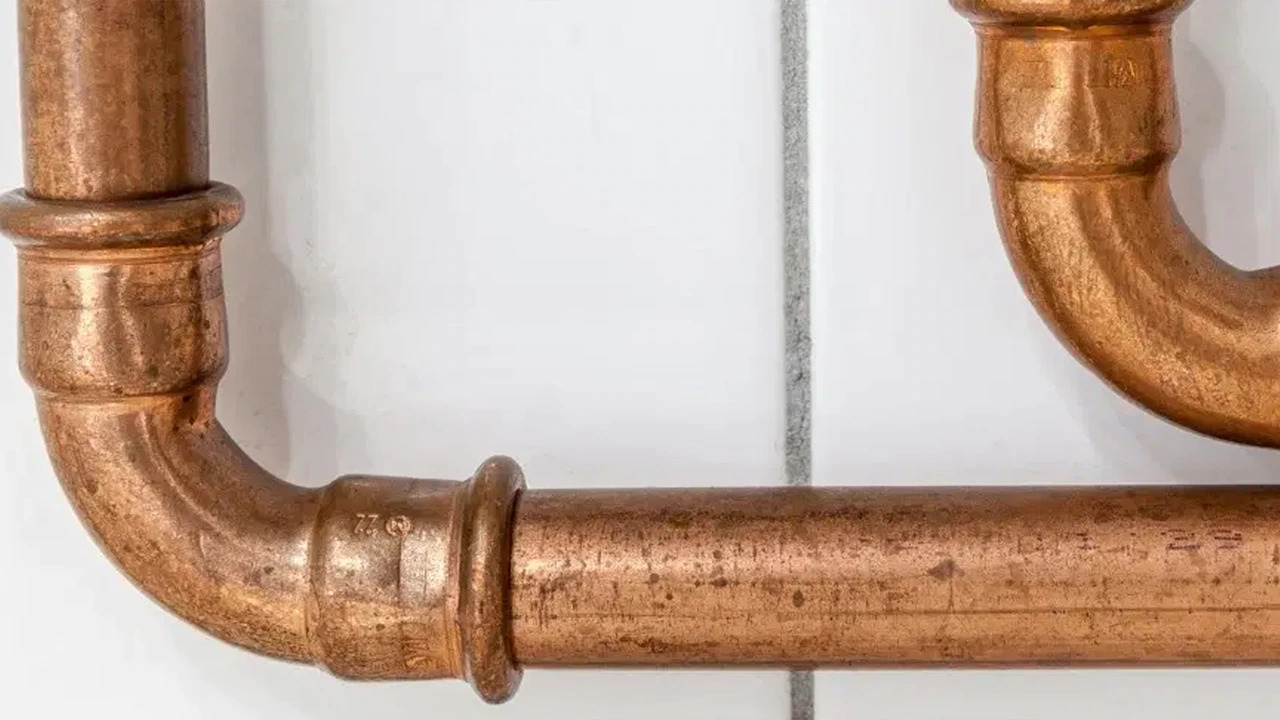
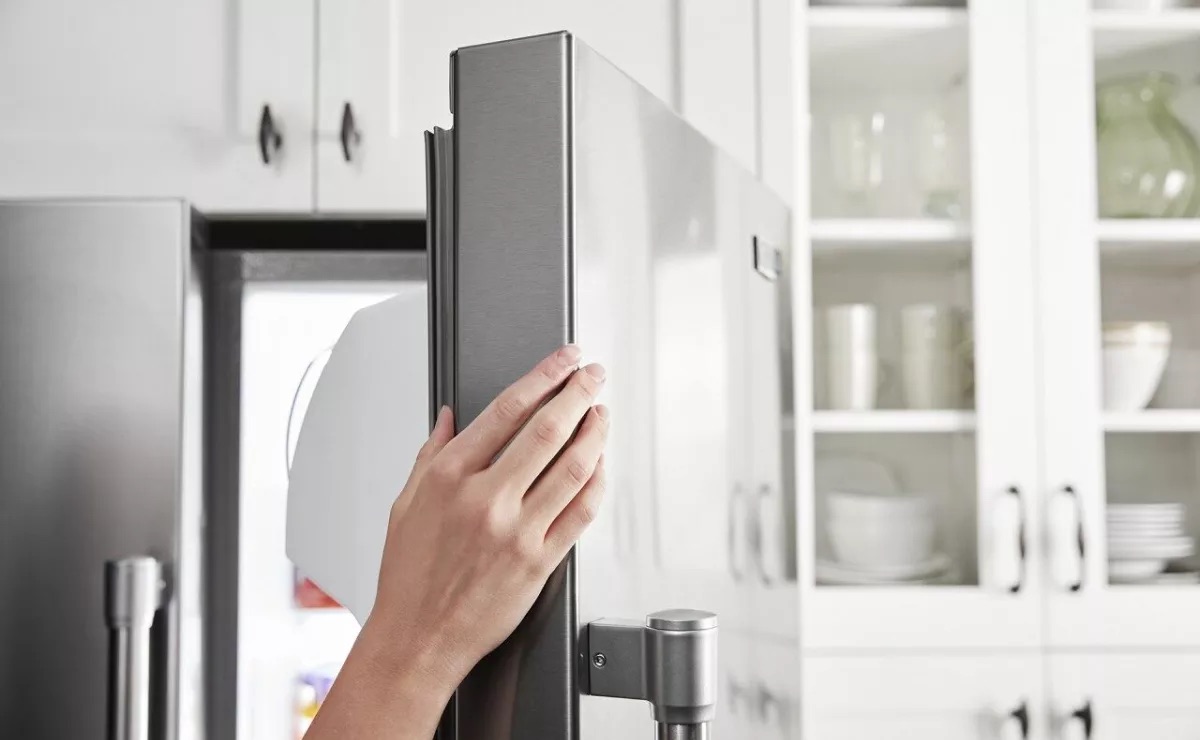
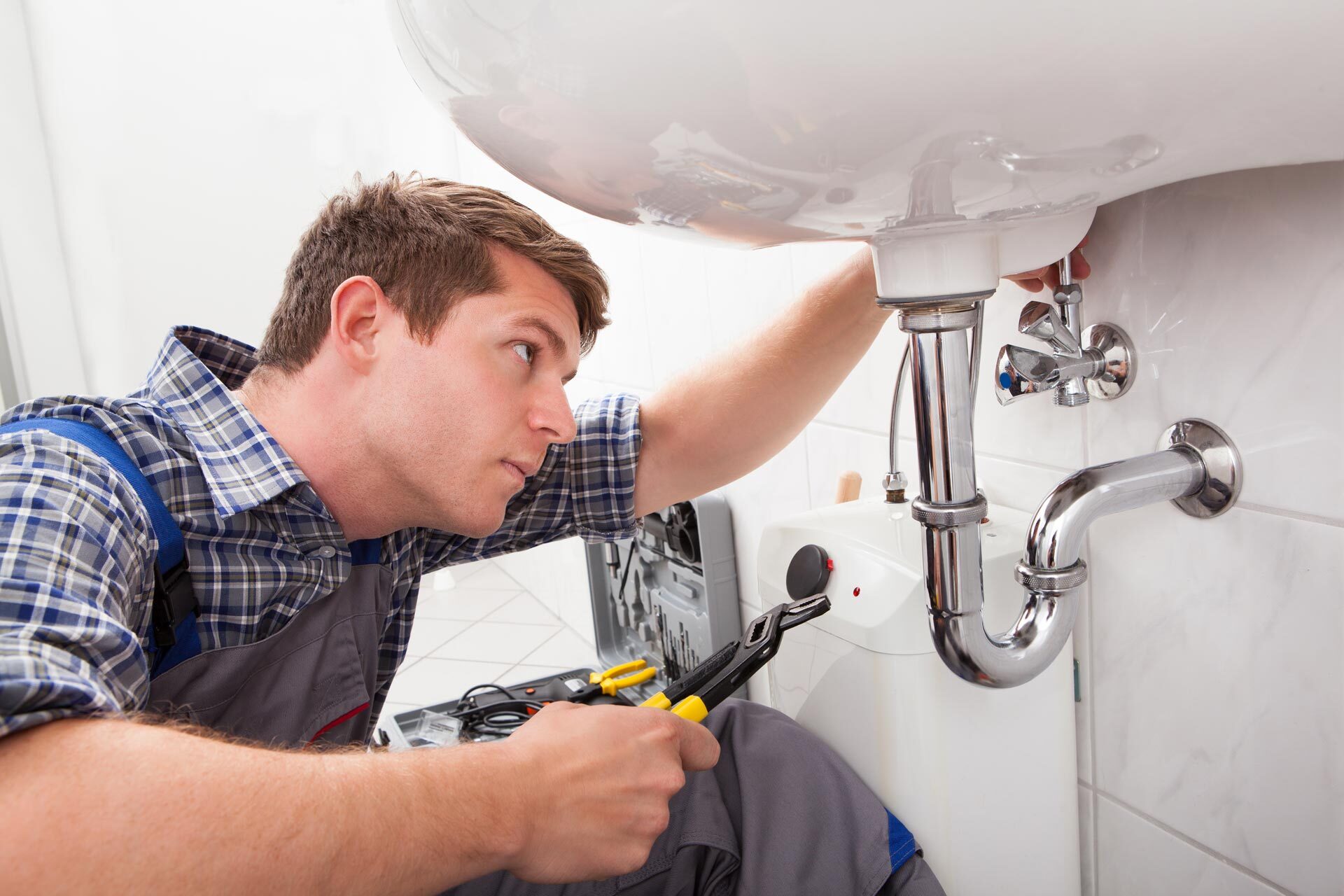
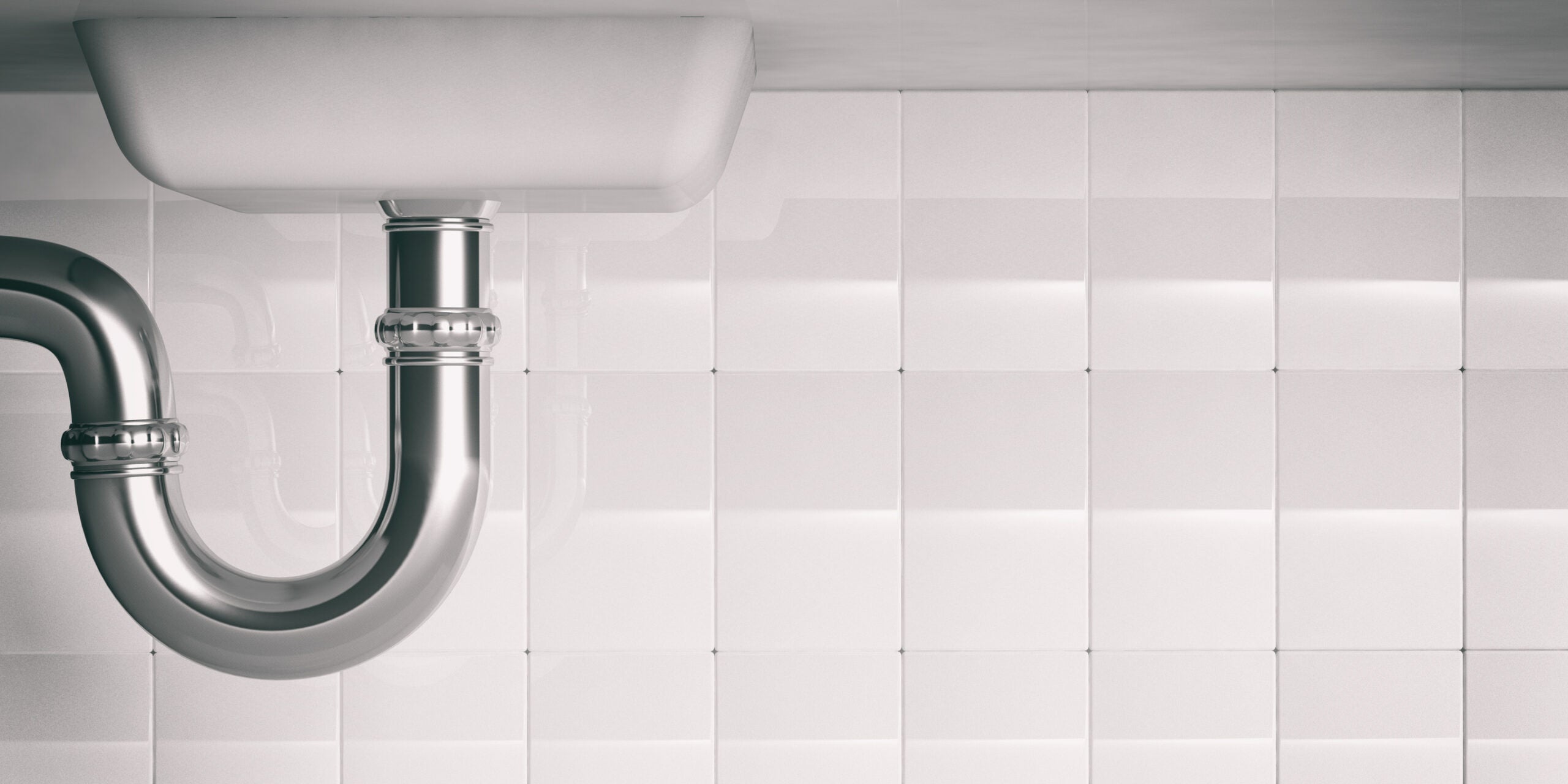

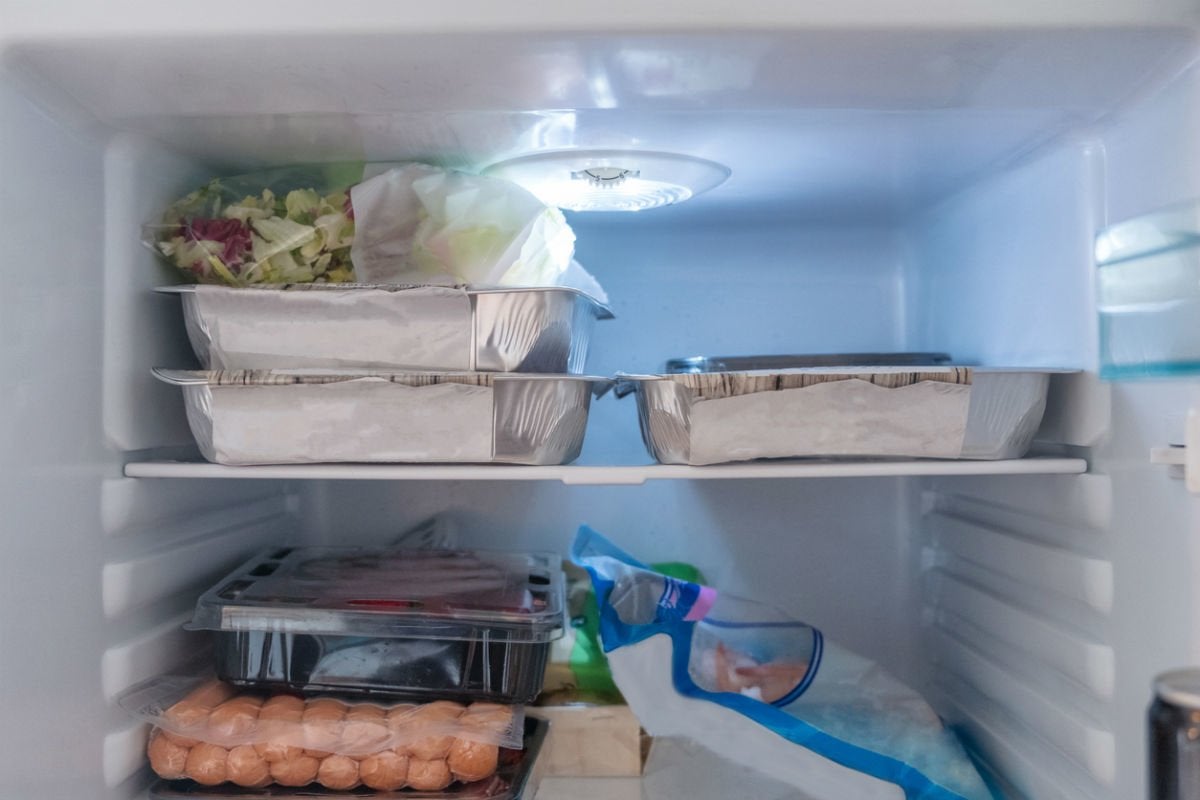
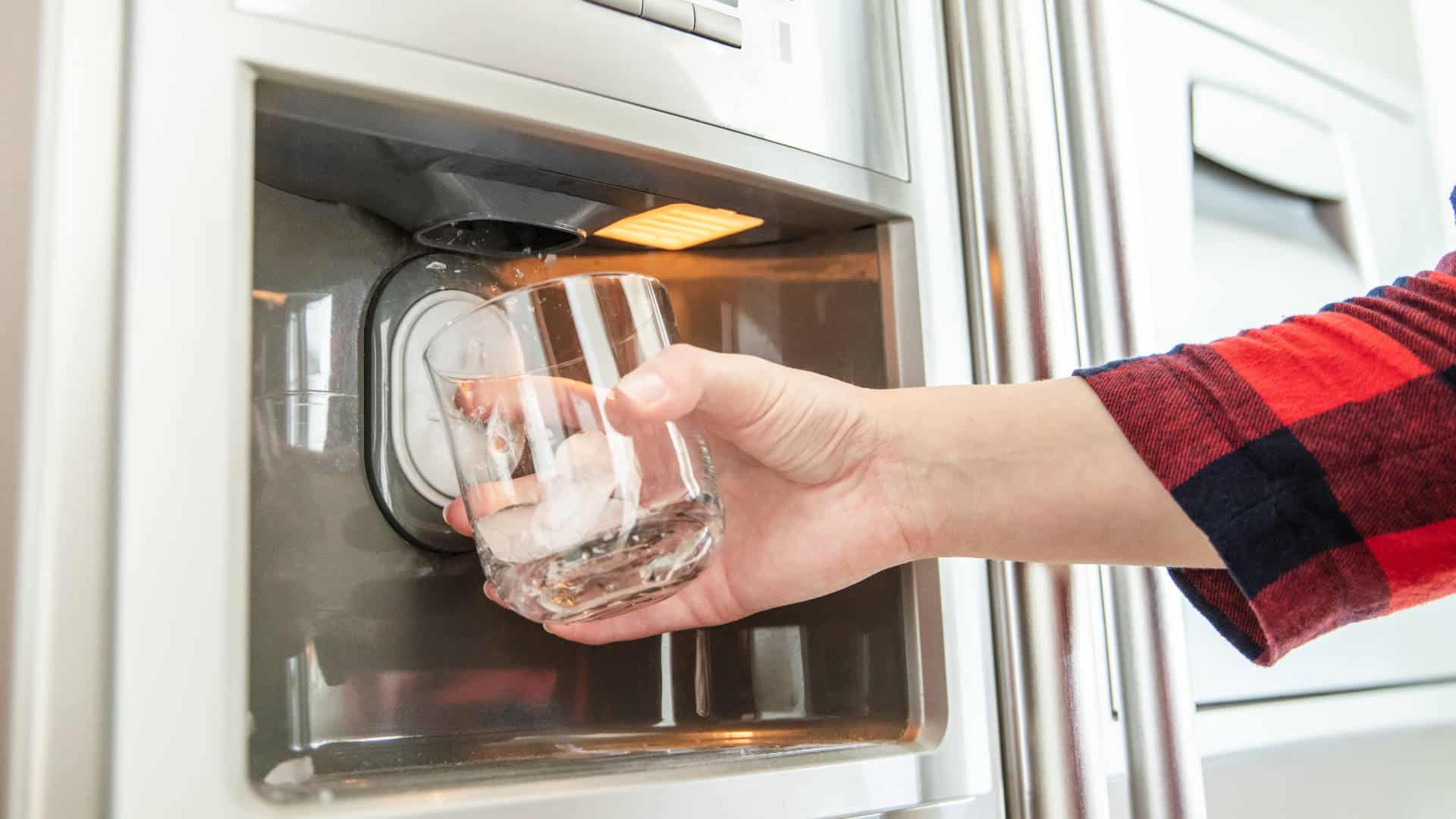
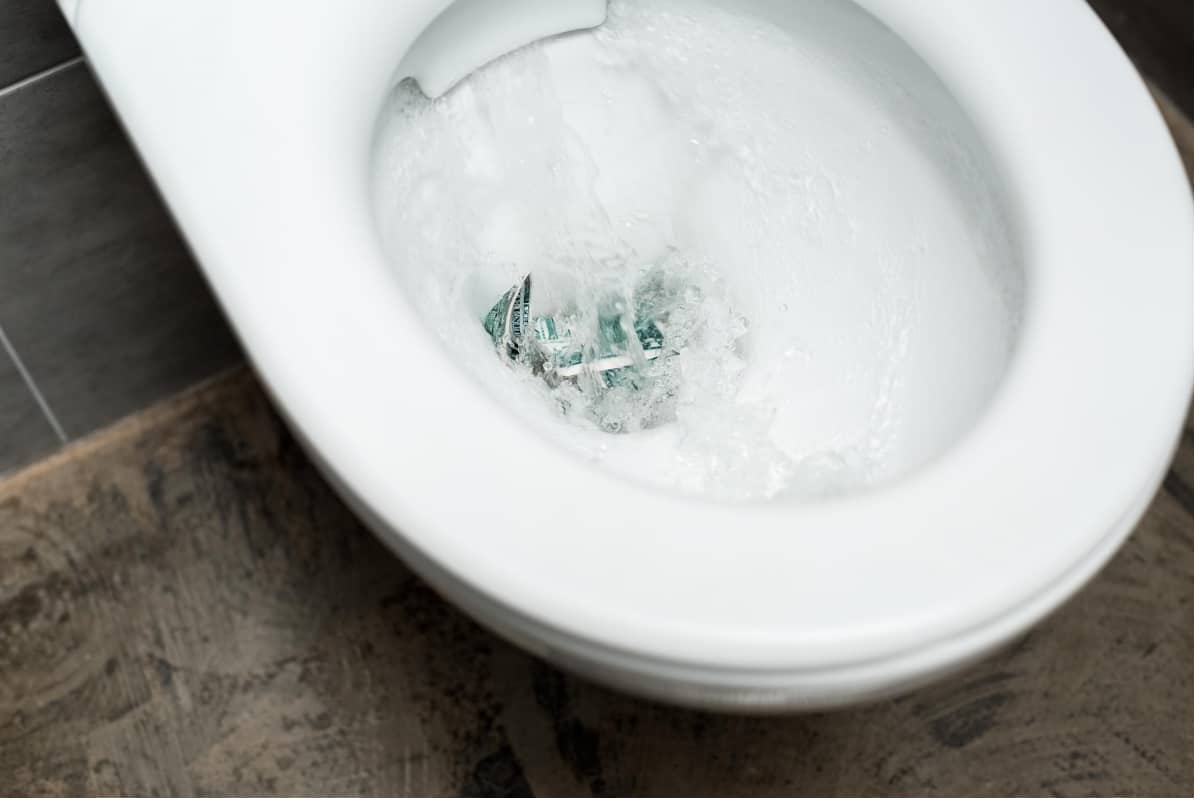
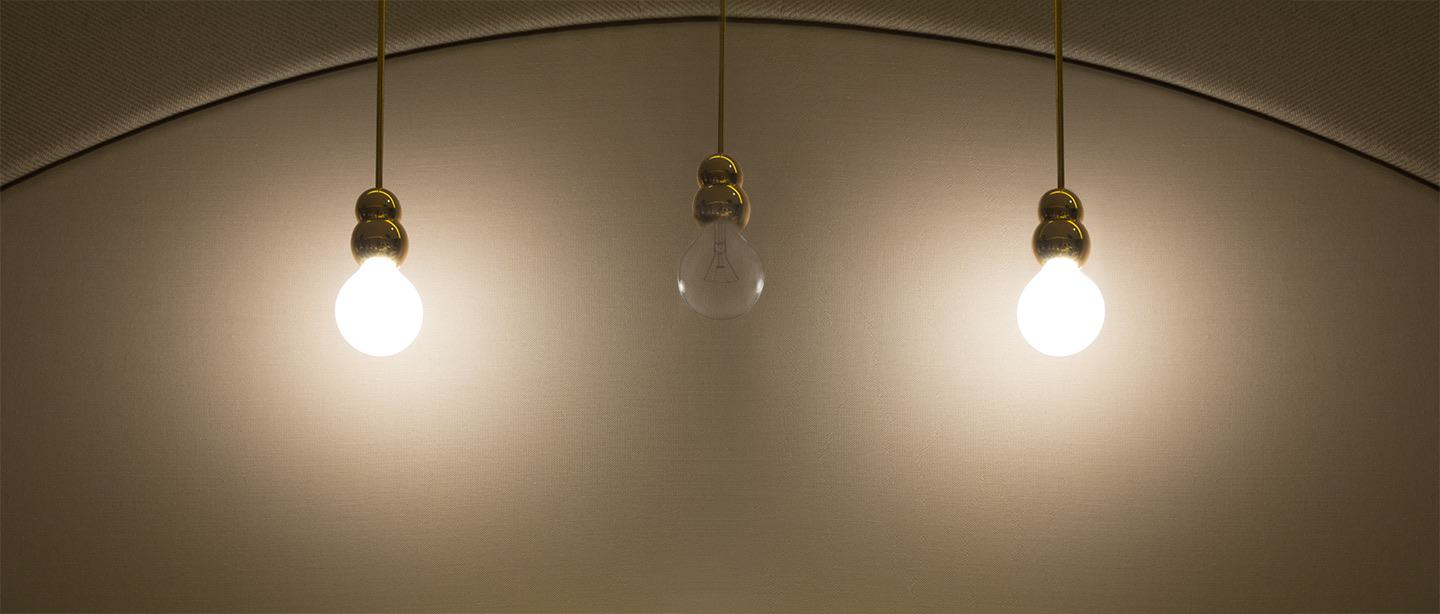
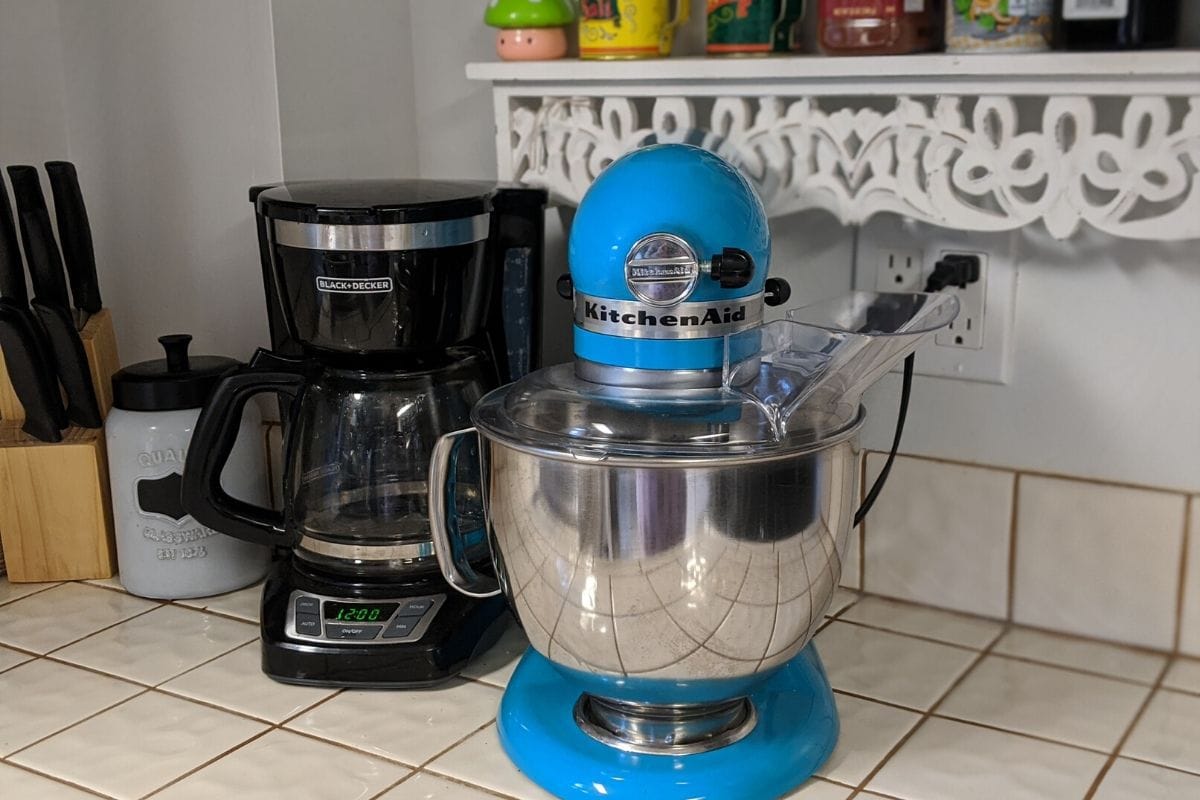
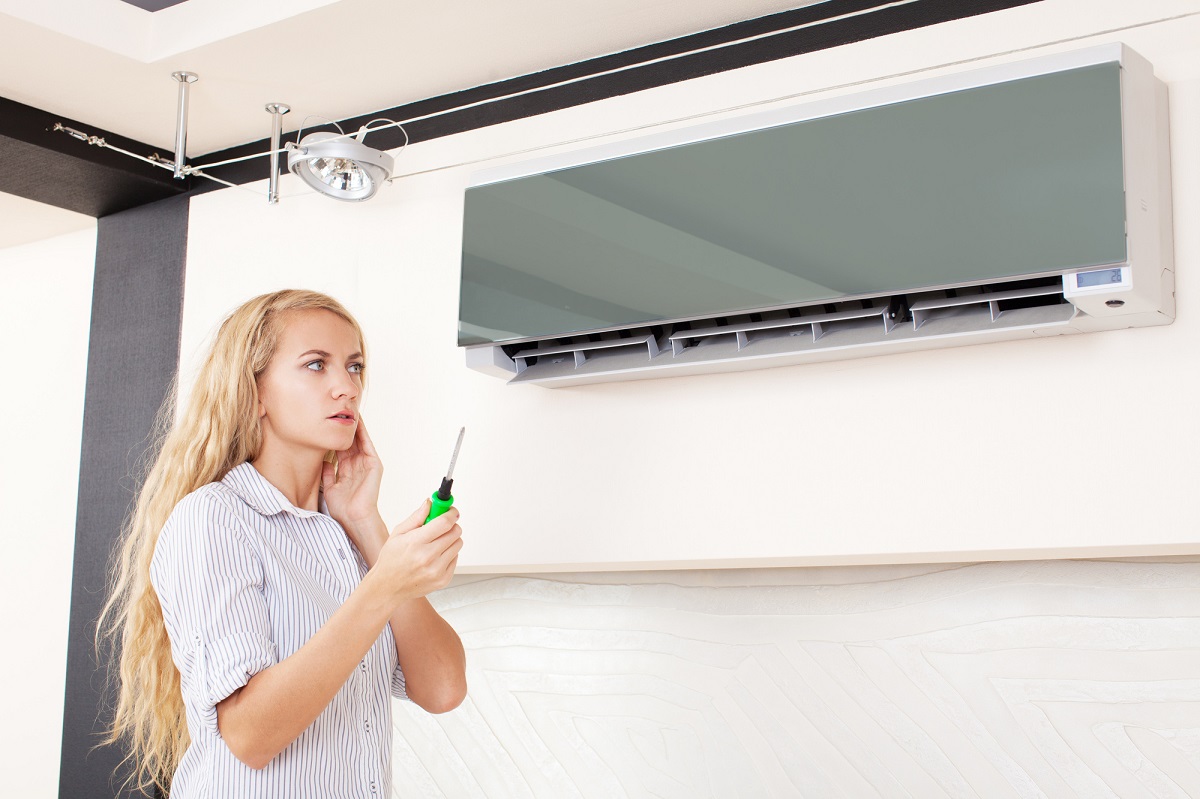

0 thoughts on “Why Does My Plumbing Pipe Make Noise”